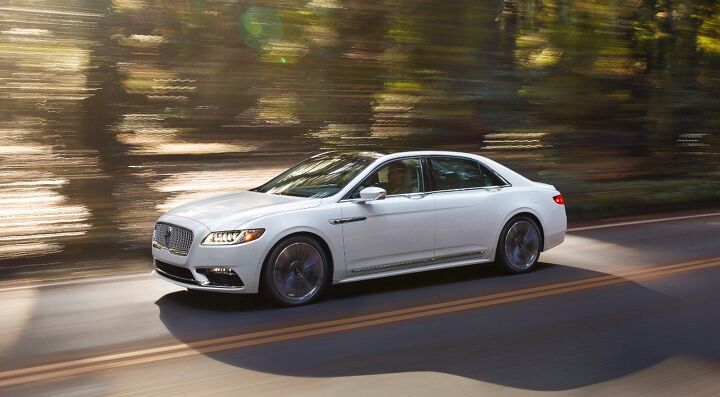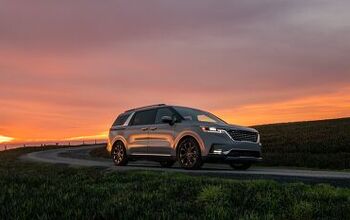Death Comes to the Lincoln Continental?

It’s not something a Lincoln aficionado, or even anyone with a general appreciation for history, wants to hear, but sources with knowledge of Ford Motor Company’s product plans claim the Lincoln Continental is headed for the grave.
Speaking to Ford Authority, the sources claim Lincoln’s full-size flagship sedan won’t see a second generation, with parent company Ford choosing to pull the plug and discontinue the slow-selling model instead.
Weak sales and the high cost of developing the model seem to have played a role in the decision. The automaker invested over $1 billion to bring the model back to the market in late 2016, the sources say, and the model’s slow sales aren’t refilling the coffers.
If true, it’s not exactly a shock, as other vehicles built on the same CD4 platform —Ford’s Fusion and Lincoln’s MKZ — don’t seem to have a future, either. Ford hasn’t committed to the production of those vehicles after 2020, and recently halted the development program for the next-generation Fusion. Nor will any new Fusion hail from China or Europe, the company states. (The longer Continental rides atop a modified version of the CD4 platform.)
While some Fusions and MKZs undergo assembly in Mexico, the Continental is an all-American affair, rolling out of Michigan’s Flat Rock assembly plant.
Hope for a next-generation Continental sprang from Ford’s development of the modular, and very versatile, CD6 platform, which can be configured for front-, rear-, or all-wheel-drive applications. However, a source close to the company tells TTAC that, as of now, the platform isn’t expected to underpin any passenger car, just the upcoming rear-drive 2020 Explorer and its Lincoln crossover sibling.
Under former CEO Mark Fields, the CD6 platform was expected to form the basis of the next-gen Fusion, MKZ, Mustang, and Continental, the source said.
Despite the fanfare surrounding its launch, Lincoln’s reborn Continental couldn’t escape the curse afflicting other passenger cars. As popularity of trucks and SUVs grew, something had to give. Lincoln passenger car sales fell 32.6 percent in the U.S. in February, and 36 percent over the first two months of 2018, dragging down the brand as well as Ford Motor Company as a whole.
Continental sales fell to the lowest point ever last month, sinking below the figure recorded in its first month on the market (September 2016). Just 751 of the big sedans left U.S. dealer lots in February, with Canadians buyers only snapping up 31. Last year, the Continental’s first full year on the market, volume reached 12,012 units in the U.S. and 576 in Canada.
In contrast, Cadillac’s aging (but recently refreshed) XTS front-driver recorded 16,275 sales in the U.S. last year, down from over 22,000 the year before. Canadians picked up 729 versions of the less-prestigious sedan.
When contacted by TTAC, Lincoln’s global communications manager, Angie Kozleski, wouldn’t confirm or deny the subject of the report, stating, “I can tell you that the Lincoln Continental remains an important part of the Lincoln lineup and we don’t speculate about our future product plans.”
[Images: Ford Motor Company]

More by Steph Willems
Latest Car Reviews
Read moreLatest Product Reviews
Read moreRecent Comments
- Varezhka Maybe the volume was not big enough to really matter anyways, but losing a “passenger car” for a mostly “light truck” line-up should help Subaru with their CAFE numbers too.
- Varezhka For this category my car of choice would be the CX-50. But between the two cars listed I’d select the RAV4 over CR-V. I’ve always preferred NA over small turbos and for hybrids THS’ longer history shows in its refinement.
- AZFelix I would suggest a variation on the 'fcuk, marry, kill' game using 'track, buy, lease' with three similar automotive selections.
- Formula m For the gas versions I like the Honda CRV. Haven’t driven the hybrids yet.
- SCE to AUX All that lift makes for an easy rollover of your $70k truck.




































Comments
Join the conversation
gorgeous car. proportioned just like a mercedes. perhaps theyll dump them off at firesale prices and I can pick one up for a drift car.
Ford sucks... Case closed.